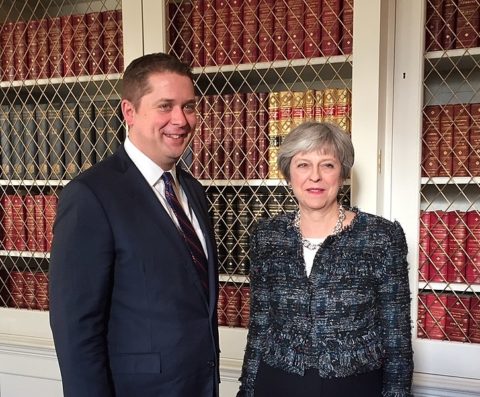He doesn’t hate either of them, he just thinks they are either fools or knaves. As the Instapundit often says, it might be time to “embrace the healing power of ‘and'”:
No doubt it is the mark of bad character to rejoice, as I do, in the spectacle of a man being hoist with his own petard, and as the Canadian Prime Minster, Justin Trudeau, has recently been hoist. And while I am at it, I confess also that, though I know that there is no art to find a mind’s construction in the face, I cannot help also but judge people, at least to an extent, by their physiognomy. And the fact is that Mr Trudeau has a face as characterless as that of the former British Prime Minister, David Cameron. They are of the same ilk. You look at them and think “What nullities!” The main character discernible in their faces is lack of character.
David Cameron’s official portrait from the 10 Downing Street website, 3 August 2010.
Open Government Licensed image via Wikimedia Commons.It is not their fault, perhaps; besides which I, or you, might be mistaken in our assessment of them and actually they have backbones (or what my teachers use to call moral fibre) of enormous strength. In any case, there are worse things to be, especially in the field of politics, than a nullity: an evil monster, for example, would be far worse, and no one could seriously claim that either of Messrs Trudeau and Cameron are, or were, evil monsters, however little they inspire admiration.
No one, then, could accuse me of partiality for Mr Trudeau, and the abjectness of his apology for his behaviour when he was a very young man did nothing to increase my liking for him. But it seems to me that sins as a young man were venial at worst, a callow disregard of the sensibilities of others which I common in youth. I very much doubt that he was a deep-dyed racist in any dangerous way, more a silly boy having a bit of fun.
There is a serious side to this imbroglio, of course. If the political leader of an important country can be overthrown or not re-elected on so relatively trivial a ground, while at the same town no one cares in the least about his shallow but dangerous moral posturing and obviously weak-minded pandering to the ayatollahs of an absurd and ill-founded political morality, then a new nadir of decadence and cowardice has been reached. It is a difficult question of moral philosophy as to whether it would be worse if Mr Trudeau actually believed his own political correctness or merely made use of it as a means to power. If the former, he is a fool; if the latter a knave. I leave it to others to decide which is better in a politician, or indeed in any other human being, foolishness or a knavery.
Political correctness is dangerous because when fools or knaves get into power, they may try to implement its dictates. And since many people are much more concerned to appear good than to do good, and since they are unlikely to suffer the consequences of their own actions (except when hoist on their own petard), the implementation may continue for a long time after the negative effects of its dictates have become clear. When implemented, those dictates create a clientele dependent upon their continuation, which turns any attempt to undo the harm into a nasty social conflict.










